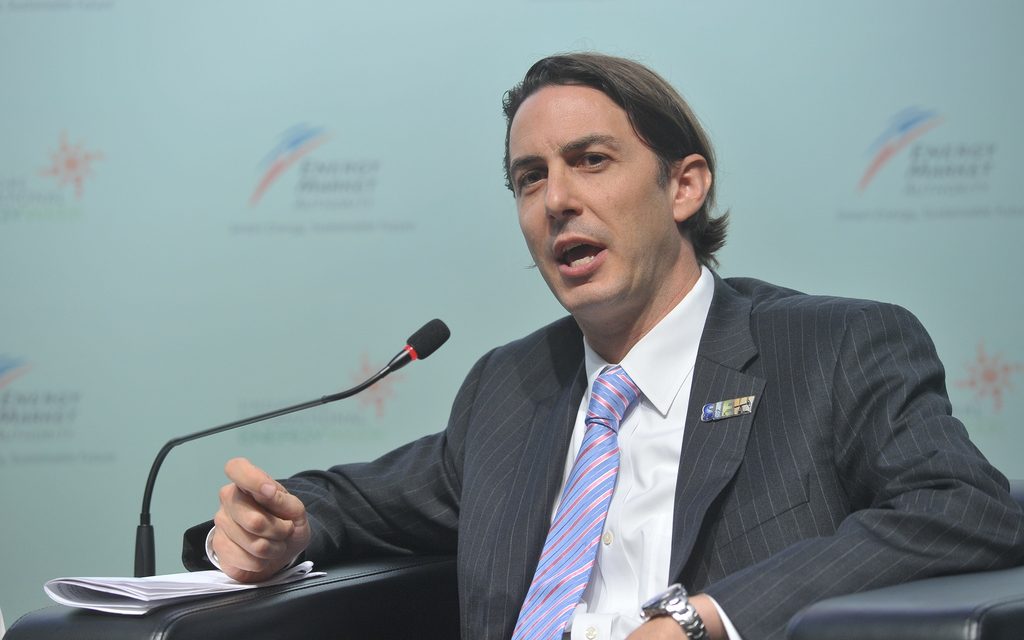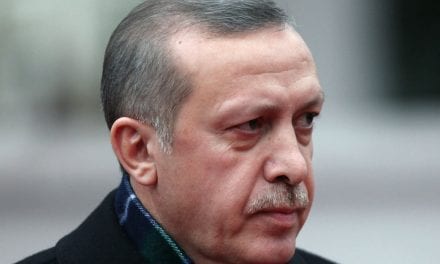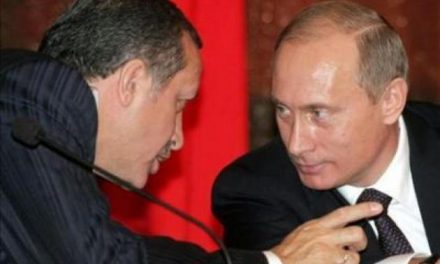Greece can play the role of the strategic partner in the region, said the special envoy of the State Department for security and energy Amos Hochstein after his meeting Wednesday with Energy Minister Panos Skourletis.
The meeting seems to have been taken place in very good atmoshpare, which is not reminiscent of anything that had transpired between Hochstein and Lafazanis last May, and it is no coincidence that in the statements of the two men was not the slightest reference to the famous greek-russian pipeline Turkish Stream. A work which in any case has been stalled with the responsibility of Turkey.
Regarding TAP, Skourletis described the pipeline as the top project of strategic importance for Greece, while he stood at the offset benefits that have been asked by the Government. Such issues, negotiated by the government with the consortium of the pipeline, are reportedly compensation to the State, as TAP will run not only pass through private (rural) areas but also from public ones, the change of its route so as not to pass through forest areas, and corporate social responsibility issues.
No more on the negotiations table appear to be issues that had been raised strongly Skourletis’ predecessor in the ministry, Panagiotis Lafazanis, namely the reduction of the price of gas to Greece that will be supplied by the Azeris, the participation of the Greek State in the share capital of TAP, and the levying of transit fees.
Some of them appear to have been considered as unfeasible – e.g. European Community legislation does not provide for the imposition of transit fees on pipelines crossing its territory; while for others, such as the participation in the share capital of the joint venture, there is already a provision, albeit at a low rate. Finally, ensuring a lower price of the Azeri remains a request, but it is considered that it could be discussed at a later time, since it can be put on the table closer to the date of the pipeline’s startup, ie 2019.
“We have inherited the terms of an agreement which in his opinion would have been better for the Greek side. We wish to contribute to speed up procedures after having finished on the benefits for Greece”, Skourletis said.
On his part, the representative of the State Department said he had a very good discussion with the Greek minister, that Greece can take on the role of strategic partner for the region, and that the US wants to continue working together on energy security.
He made it known that the US side encourages dialogue in order to find commonly acceptable solutions to the issue of TAP. “I leave convinced that we will have a strategic partnership and will continue to work closely as in the past”, he added.
After the bilateral meeting followed a tripartite one attended and the Bulgarian Energy Minister, Temenuzhka Petkova, regarding the IGB pipeline.
They discussed issues had to do with the funding and sustainability of the project, Skourletis stated, adding that the meeting between the three sides has been renewed for next week in Sofia. “We hope to have solved the issues next month. There is willingness to accelerate the work and make it a reality, which requires to accelerate the terms of its financial sustainability”, added the Greek minister of energy.
Along the same lines, Hochstein stressed that there was a significant progress for the IGB and hoped to reach agreement in a short time.
What has changed
Hochstein’s trip comes after what pointed out to prime pinister Alexis Tsipras, the US Secretary John Kerry, during their recent meeting in New York.
The messenger of the US on energy diplomacy issues, visited Athens for the second time in five months, since in May he had met with Panagiotis Lafazanis, making it clear at the time that Washington opposes any initiative relating to the famous Greek- Russian pipeline.
But now the circumstances of the visit are different. First, Lafazanis is not in the government. Second, in recent months Tsipras’ government appears to approach more realistically the Greek-Russian project for the famous Southern Corridor, with the logic that it is merely a plan, an idea that cannot constitute the axis around which all of the international country’s energy initiatives moves. Third, in any case, the project is stuck by Turkey’s stance, and many already consider it “dead”.
Greek-Bulgarian pipeline a crucial project
Heads were turned at the tripartite meeting Hochstein-Skourletis-Temenuzhka Petkova, concerning the Greek-Bulgarian IGB pipeline.
The project is considered extremely crucial as it will connect with both the Greek network and the TAP pipeline, and will allow Bulgaria first and in the second phase Romania, Serbia and Hungary, which are also largely dependent on Russia, to receive gas from other sources. Either from Azerbaijan via the TAP, or liquefied gas, through the terminal at Revithoussa.
But the IGB is far from close to be agreed. For too many months now, with Sofia’s accountability is continually postponed the investment decision for the construction. Everything indicates that the start of construction of the project still has a long future, and that it won’t be ready by 2020 in order to supply Bulgaria with gas from Azerbaijan that Greece will carry through the TAP.
Last episode in the series
The last episode in the series of the IGB, is the information that the company’s pipeline ICGB, based in Sofia (participate with 50% the state-owned Bulgarian BEH, and with 50% Poseidon, namely DEPA and Edison) has decided to extend the process of market test, with the proclamation of a second phase.
The process of market test is required by Community legislation. Its aim is to ensure that a conductor attracts candidates users who guarantee to cover its capacity, thus making it viable.
Especially in the case of the IGB, the first market test was launched in May 2013, and had marginal results. While now everyone expected the company to make the investment decision, the company launched a second market test, citing a number of uncertainties arising. How long will this second phase last, nobody knows. It will be determined by the terms of the notice on cooperation with the Regulatory Authorities of Greece and Bulgaria.
The European Union – which provides financial assistance for the project – as well as the US, are very interested for the IGB to start and be completed as soon as possible. Today Bulgaria is one of the most dependent pan-European countries on Russian gas. The completion of the project means that the Bulgarian network can receive and gas from Azerbaijan, as well as gas from the spot market, through the LNG terminal at Revithoussa.
In addition, through the TAP-IGB network Greeks suppliers can bring volumes of gas hubs in central Europe (Baumgartner Austria, and elsewhere), which today is impossible.
And this because the Greek gas network is currently isolated from Europe. Gazprom has blocked the capacity of the existing Greek-Bulgarian pipeline (to about 12 of the 13 million cubic meters daily supply), preventing the passage of additional quantities.



















